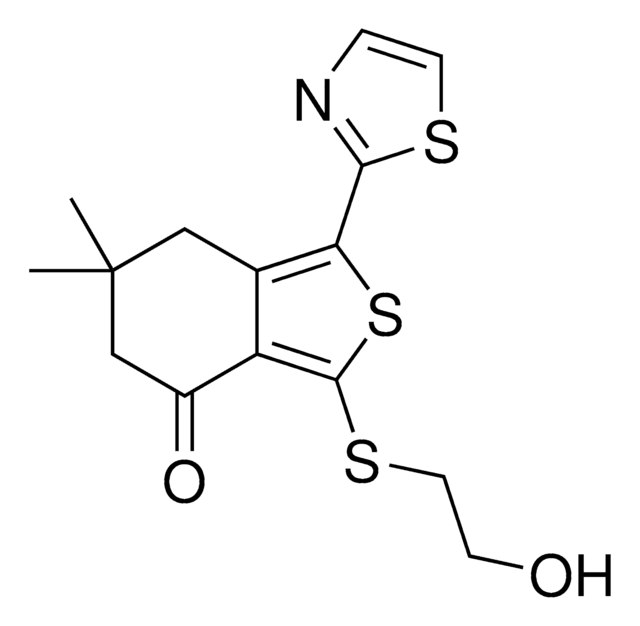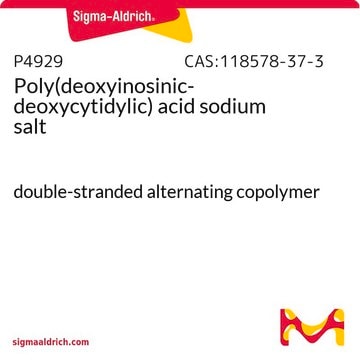KEM0031
Klenow Fragment
Ultra-pure enzyme for nucleic acid modifications
Iniciar sesiónpara Ver la Fijación de precios por contrato y de la organización
About This Item
Productos recomendados
grado
for molecular biology
Análisis
>99% (SDS-PAGE)
formulario
buffered aqueous solution
actividad específica
5,000 U/mg
concentración
5,000 U/mL
Condiciones de envío
dry ice
temp. de almacenamiento
−20°C
Descripción general
Klenow Fragment is a mesophilic DNA polymerase derived from the E.coli Polymerase I DNA-dependent repair enzyme. The enzyme exhibits DNA synthesis and proofreading (3′ → 5′) nuclease activities, and, in the absence of the holoenzyme′s (5′→3′) nuclease domain, displays a moderate strand displacement activity during DNA synthesis. The protein is expressed as a truncated product of the E.coli PolA gene.
Aplicación
Suitable for:
- DNA blunting by fill-in of 5′ overhang
- Second strand cDNA synthesis
- Sequencing
- Site-specific mutagenesis
Características y beneficios
- Ultra-purification process for ultimate enzyme performance
- Highest quality specifications for ultimate product consistency
- Undetectable DNA and nuclease contamination
Componentes
Supplied with:KEM0042B (10X Blue Buffer)
Definición de unidad
1 unit is defined as the amount of polymerase required to convert 10 nmol of dNTPs into acid insoluble material in 30 minutes at 37° C.
Forma física
Supplied in 100 mM KPO4, 1.0 mM DTT, 0.1 mM EDTA, and 50% glycerol at pH 7.4 @ 25° C.
Otras notas
Source of protein: A recombinant E. coli strain carrying the Klenow Fragment gene.
Unit size: 2,500 U
Producto relacionado
Referencia del producto
Descripción
Precios
Código de clase de almacenamiento
10 - Combustible liquids
Certificados de análisis (COA)
Busque Certificados de análisis (COA) introduciendo el número de lote del producto. Los números de lote se encuentran en la etiqueta del producto después de las palabras «Lot» o «Batch»
¿Ya tiene este producto?
Encuentre la documentación para los productos que ha comprado recientemente en la Biblioteca de documentos.
Laure Rittié et al.
Journal of cell communication and signaling, 2(1-2), 25-45 (2008-09-04)
Since molecular cloning has become routine laboratory technique, manufacturers offer countless sources of enzymes to generate and manipulate nucleic acids. Thus, selecting the appropriate enzyme for a specific task may seem difficult to the novice. This review aims at providing
Nuestro equipo de científicos tiene experiencia en todas las áreas de investigación: Ciencias de la vida, Ciencia de los materiales, Síntesis química, Cromatografía, Analítica y muchas otras.
Póngase en contacto con el Servicio técnico







